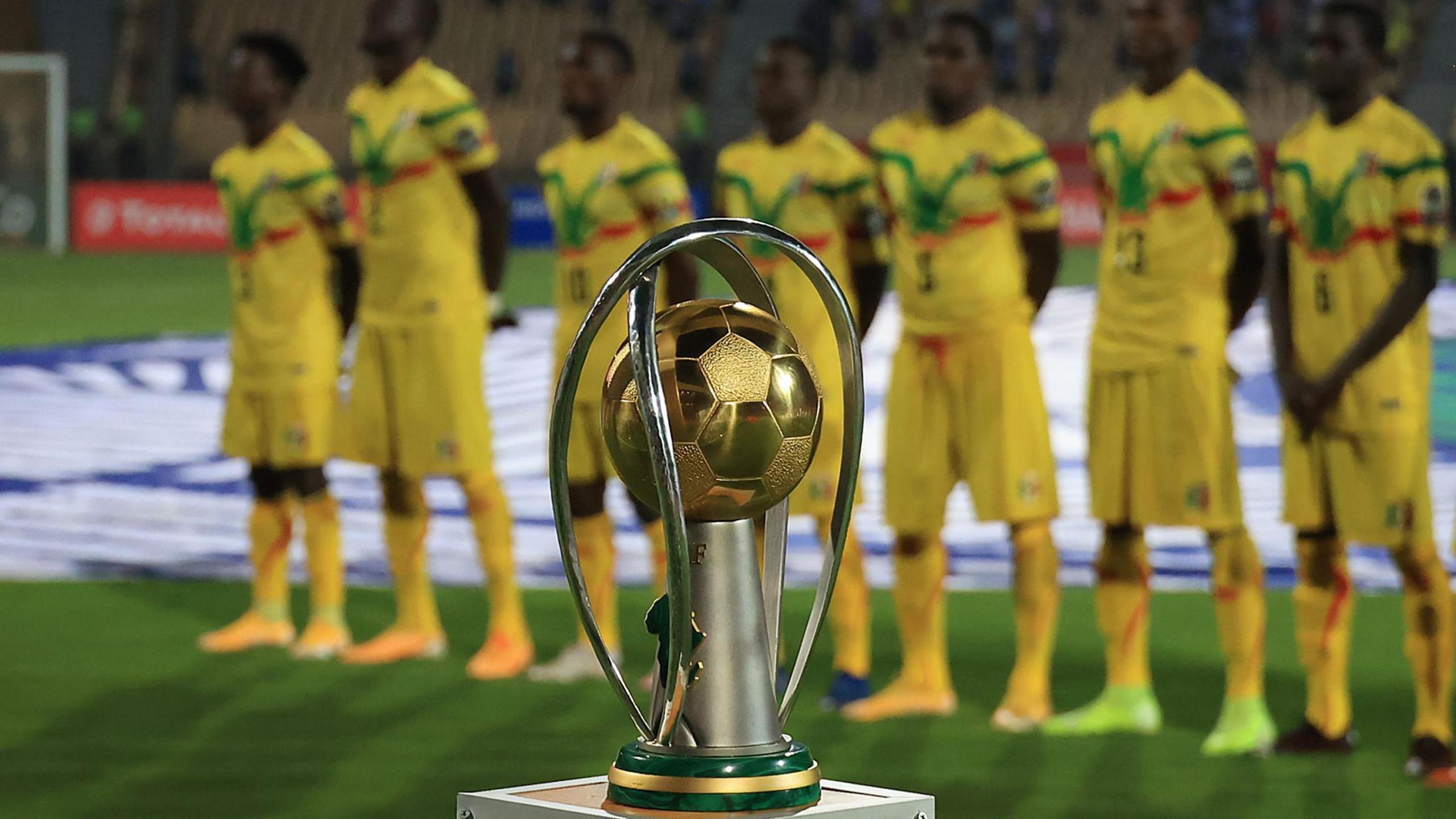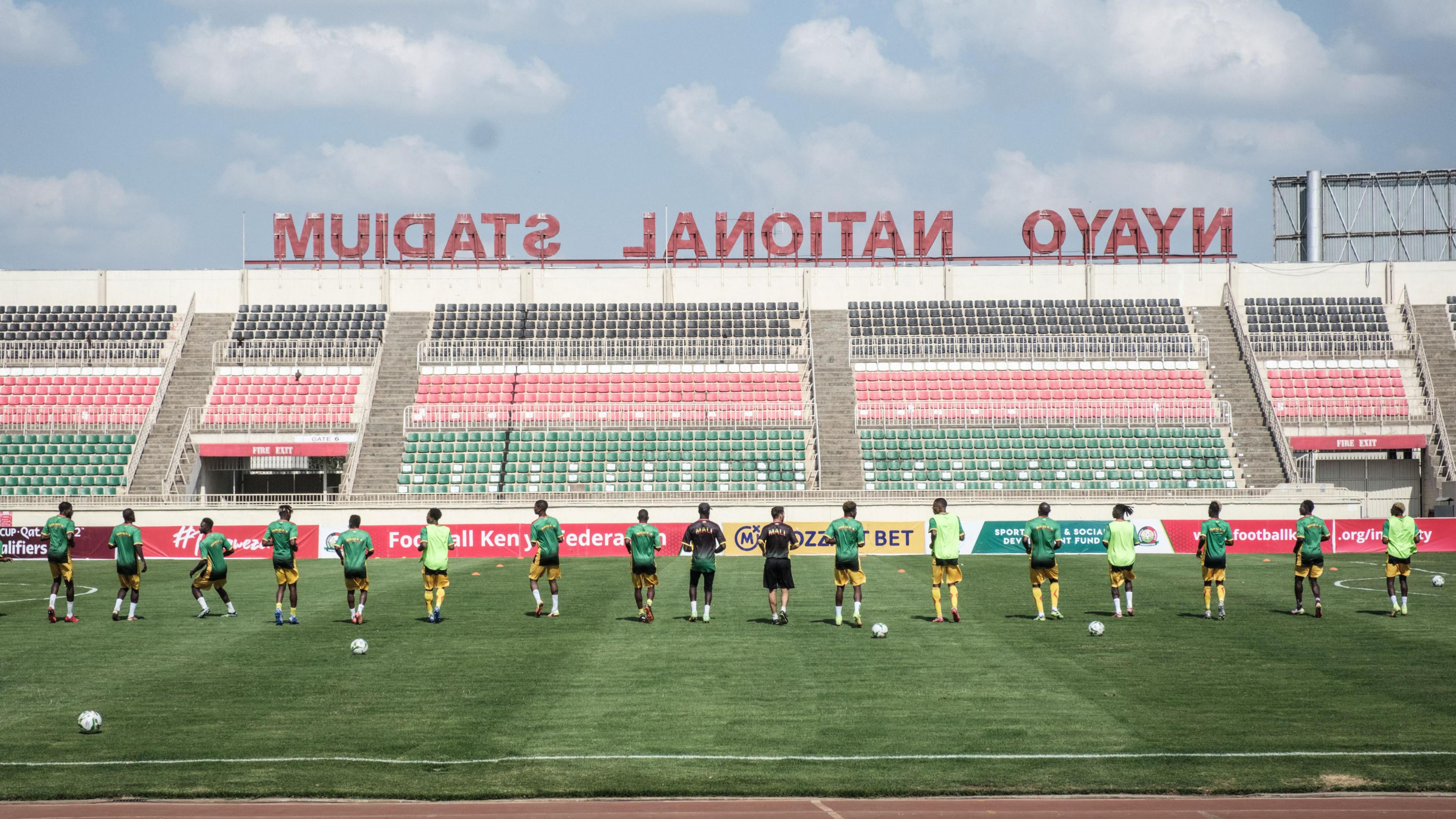Kenya confident it will remain as CHAN 2024 co-host

The African Nations Championship (CHAN) is a men's international competition featuring players who compete in domestic league on the continent
- Published
Kenya is committed to co-hosting the 2024 African Nations Championship (CHAN) next year despite concerns about its preparedness for the competition, which begins on 1 February.
The country is due to provide two venues, Nyayo National Stadium and Kasarani Stadium, for what is scheduled to be a 19-team tournament co-hosted by East African neighbours Tanzania and Uganda.
Reports in local media suggest that Kenya is at risk of losing hosting rights following an inspection of facilities last month, but a Confederation of African Football (Caf) official told the BBC there had been no such discussion.
"With the benefit of hindsight, we put ourselves under pressure by hosting CHAN," Kenya's sports minister Kipchumba Murkomen told BBC Sport Africa.
"If we had taken more time to think through it, maybe, perhaps we should not have done so.
"But now that we have committed ourselves, we have decided that we will do everything in the books humanly possible to make sure that we achieve what we need to do."
It will be the first time three countries jointly host CHAN, a tournament reserved for players who feature in their national domestic leagues across the continent.
The second-tier competition is considered as a dress rehearsal for Kenya, Tanzania and Uganda before the trio become the first three-way hosts of the Africa Cup of Nations (Afcon) in 2027.
Ghana to face Nigeria in qualifying for CHAN 2024
- Published9 October 2024
CHAN 2022 hailed as 'best ever'
- Published6 February 2023
The rights to host next year's CHAN were awarded in December 2023.
At the time Kenya did not have any stadiums approved by Caf to host international matches, making the road to hosting steeper, but promised to have two venues ready for the tournament.
In comparison, Tanzania already had a stadium which fulfilled Caf's criteria while the venue Uganda has earmarked for CHAN was approved this year.
"What brought us here is because of the status of our stadiums and the resources we need to renovate them," Murkomen explained.
"What we are doing is to expedite the processes of delivering.
"Some of the things we would have brought by sea are being brought by air. Some of the things that the contractor was working on during the day, [they now] work overnight.
"For now, there are certain contingency measures that are being put in place to make sure that we achieve CHAN. Then we can complete a stadium for Afcon."
Qualification for CHAN 2024 is due to be completed by the end of December, and Murkomen says any changes to where the finals will be played lie with Caf.
"It will not be our decision if it will be hosted in one stadium, it will have to be decision of Caf," he said.
"Up to now they have not done the team roster and the scheduling for which team is going to go to which country."
Checkered past with hosting rights

The Nyayo National Stadium has previously hosted Kenya's home matches but is now being renovated ahead of the 2024 CHAN
Kenya certainly has a chequered past when it comes to staging continental football events.
In 1996 they lost Afcon hosting rights to South Africa after the Kenyan government informed Caf the country was not ready.
History repeated itself in 2017 when the country was stripped of the 2018 CHAN.
Last month a Caf delegation inspected stadiums, hotels, airports, training venues and other facilities over the course of a three-day trip to Nairobi.
Caf's host country manager for Kenya, Kabelo Bosilong, told the media the governing body is committed to ensuring that "these tournaments will take place in the countries that it was intended to take place".
Kenya is due to spend over $20m on stadium renovations, and the sports minister has defended hosting CHAN at a time when other sectors in the country are in dire need of funding. The education sector, for example, was recently crippled by prolonged strikes.
"It usually comes up all the time when governments host (big events), whether it was the Olympics in London, the World Cup in Brazil and many other places," Murkomen said.
"People keep asking 'Why would you want to put this amount of money in football vis-a-vis other competing interests?'.
"The consideration that was made when we were bidding was also the benefits that come from it. We are thinking our tourism is going to go up.
"We also believe that it's going to inspire growth in the sports sector, and many young people will get opportunities. We believe that football investors and football scouts will also see Kenya as a country [with] potential."